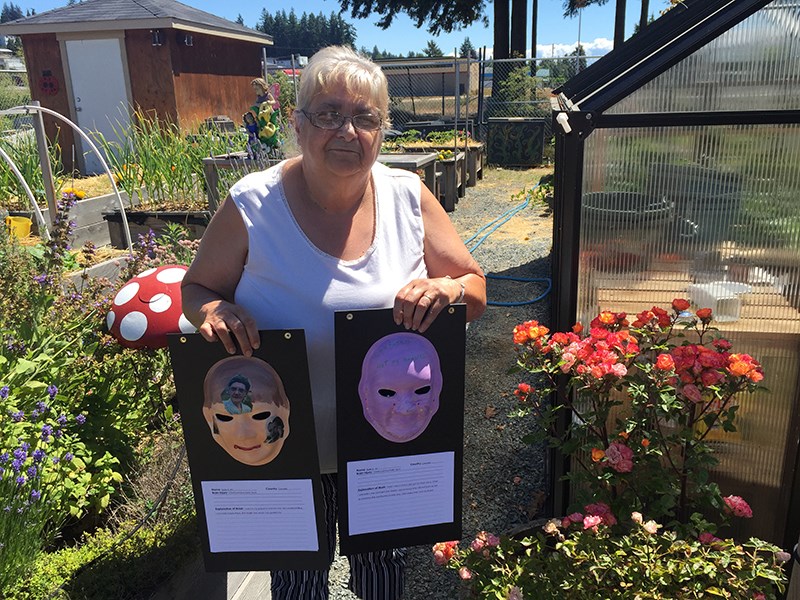June marks Brain Injury Awareness Month in Canada. Locally, Powell River Brain Injury Society has been providing a place of hope and healing for those experiencing these invisible injuries for 16 years, according to general manager Samantha Sherman.
Since its beginning, the society has expanded from a monthly support group to a centre that serves a membership of more than 150. The group provides support, education and advocacy for people living with a brain injury as well as their families, friends and caregivers. Programs available to clients include artistic options.
“We’ve got metal workers, crocheters, knitters, painters and poets,” said Sherman. “We try to support them in any way we can.”
In addition to being a beneficial form of rehabilitation, the art created can become a source of income for clients who may no longer be able to perform certain jobs.
“A lot of it is alternatives to traditional employment,” added Sherman. “Because going in and working an eight-hour shift isn’t possible for many people with brain injuries anymore. A lot of employers don’t want to hire someone who can only work two hours or can’t work a cash register because their memory lapses. So we find other ways to help them.”
First Credit Union sponsors a booth at Powell River Farmers’ Market for brain injury clients to sell their wares. This includes the society’s popular hot sauce, a cookie business and various arts and crafts, said Sherman.
Client Dale Humphries became involved with the society two years ago.
“I didn’t know anything about it; my niece brought me here,” said Humphries. “They’re fantastic. They’re so helpful.”
Humphries discovered a welcoming place and a passion for art. “I come here every single day,” she added. “I didn’t know I could paint until now.”
She is a familiar face at the farmers’ market, according to Sherman. “Dale gets involved with all of our programs: the arts council, gallery, fitness programs. When something new comes up she wants to try it.”
Fitness programs are another popular activity offered by the society.
“We started out with two people going and now we’ve got two fitness programs running at the same time twice a week,” said Sherman. “I’m excited to see people getting more active but I’m also really excited to see people at the farmers’ market getting out there and getting engaged in the community and talking to people.”
Sherman said her main advice is to remember that not all injuries are visible, and to try not to make assumptions. A little understanding goes a long way with anyone who has a disability, but especially someone who is living with a neurological disability, she added.
“It’s easy for people to make assumptions when you see someone whose taking a long time in a lineup in a store because you don’t see the injury,” added Sherman. “Just be a little bit patient. It might take them an extra 30 seconds to count out their cash, but they’re going to get there.”



